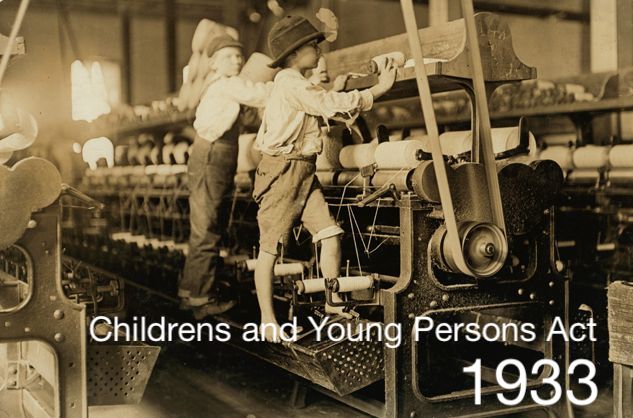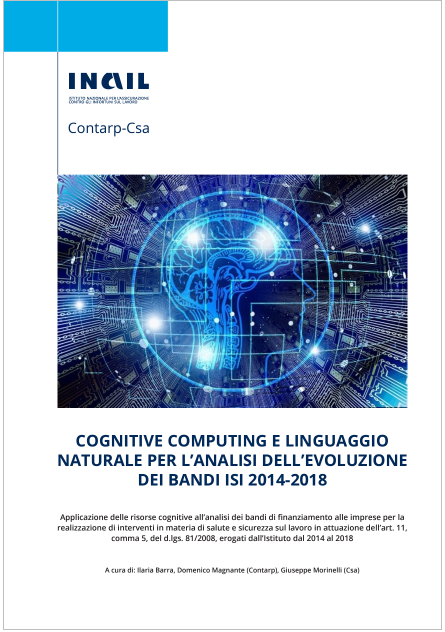// Documenti disponibili n: 46.592
// Documenti scaricati n: 36.661.535
EU-OSHA, 27.04.2022
Automation in the workplace is rising. While advances in technologies are opening up new opportunities, they also offer new challenges for the future of occupational safety and health (OSH).
As part of its 4-year research programme on digitalisation, EU-OSHA has published an initial report to address types and definitions of artificial Intelligence (AI) and advanced robotics for the automation of tasks at work. The report also maps current and potential uses across sectors and tasks – from industrial and warehousing robots to AI software in the healthcare sector and gives an overview of policies and strategies at EU and national level.
...
Table of contents
1 Introduction and objectives
2 Methodology
3 Types and definitions of AI-based systems for the automation of tasks
3.1 The task approach
3.2 Definitions of AI-based systems
3.3 Major technologies for the automation of cognitive and physical tasks
3.4 Taxonomy for AI-based systems and the automation of tasks
4 Mapping of current and potential uses
4.1 Automation of cognitive tasks
4.1.1 Distribution of technologies and applications
4.1.2 Sectoral distribution
4.1.3 Impacted tasks (and jobs)
4.2 Automation of physical tasks
4.2.1 Distribution of technologies and applications
4.2.2 Sectoral distribution
4.2.3 Impacted tasks (and jobs)
4.3 Task impact – Evaluation and preliminary OSH implications
5 Overview of policies and strategies
5.1 European level
5.1.1 Regulation
5.1.2 Strategies, programmes, initiatives and campaigns
5.1.3 Gaps and needs
5.2 National level
5.2.1 Regulation
5.2.2 Strategies, programmes, initiatives and campaigns
5.2.3 Gaps and needs
6 Summary and Conclusion
7 References
8 ANNEX
8.1 Detailed methodology systematic literature reviews
8.2 Detailed review results
8.2.1 AI-based systems
8.2.2 Human-robot interaction
8.2.3 Automation of tasks (AOT)
8.3 Overview of analysed studies
List of figures and tables
Figure 1: Selection process for scientific literature
Figure 2: Task categorisation with example tasks
Figure 3: Evolution of EU policy on AI and advanced robotic systems
Figure 4: Taxonomy for AI-based systems and advanced robotics for the automation of tasks
Figure 5: Automation of cognitive tasks – NACE sector distribution according to scientific literature
Figure 6: Automation of physical tasks – NACE sector distribution according to scientific literature
Figure 7: NACE (v. 2) code of enterprises with HRI according to ESENER-3
Figure 8: Procedure for the systematic literature searches
Figure 9: Overview of selection process for systematic reviews on AI-based systems
Figure 10: Overview of selection process for meta-analyses on AI-based systems
Figure 11: Overview of selection process for systematic reviews on HRI
Figure 12: Overview of selection process for meta-analyses on HRI
Figure 13: Overview of selection process for systematic reviews on AOT
Figure 14: Overview of selection process for meta-analyses on AOT
...
Fonte: EU OSHA
ID 24424 | 13.08.2025
Decreto 31 luglio 2025
Disposizioni integrative al corso di addestramento avanzato per le operazioni del carico delle navi cisterna adibite al trasporto di ...

UK 1933
Il Children and Young Persons Act 1933 (23 & 24 Geo.5 c.12) è un atto del Parlamento del Regno Unito di Gran Bretagna e Irlanda del Nord. Ha consolidato in un uni...

INAIL 2022
Attraverso il ricorso a strumenti di intelligenza artificiale, lo studio analizza i dati conten...
Testata editoriale iscritta al n. 22/2024 del registro periodici della cancelleria del Tribunale di Perugia in data 19.11.2024